By Annette Walker
As the Congressional Black Caucus (CBC) prepares for its annual legislative weekend this September, the members are celebrating a historical milestone. For the first time in the U.S. House of Representatives, four committee chairpersons, the Majority Whip and the House Clerk are African Americans.
The legislative weekend, scheduled after Congress reconvenes from its August recess, is a national forum to develop strategies and viable solutions to public policy issues facing African Americans. As the host, the CBC continues a tradition of representing the nation in its unique way.
The Congressional Black Caucus was established in 1969 with 13 members as the Democratic Select Committee and was renamed in February 1971. Its basic goals were to address the legislative concerns of Black and minority citizens and "to promote the public welfare through legislation designed to meet the needs of millions of neglected citizens".
Though two African Americans served in Congress during the brief post-Civil War Reconstruction period in the 1870s, Blacks were virtually blocked from representation by the Jim Crow laws which were upheld between 1876 and 1965. The laws resulted in 70 years of legal segregation and the disenfranchisement of African Americans.
The historic 1953 U.S. Supreme Court decision in Brown vs. Board of Education ushered in the dismantling of Jim Crow, and in 1965, Congress passed the Voting Rights Act. Consequently, African Americans began to reenter the U.S. House of Representatives throughout the 1960s, and felt a need for a formal organization.
Today, the CBC has 43 members including 42 in the House and Barack Obama in the Senate. They represent many of the largest and most populated urban centers in the country, as well as some of the most expansive and rural congressional districts in the nation.
The Black Caucus has been involved in legislative initiatives ranging from full employment to welfare reform, South African apartheid and international human rights, and from minority business development to expanded educational opportunities. Perhaps most noteworthy is the annual CBC alternative budget which has been produced for more than 16 years. Historically, the alternative budget departs significantly from that of the administration in power because the caucus makes its decisions based on a commitment to fair treatment for urban and rural America, the elderly, students, small businesspeople, middle and low income wage earners, and the economically disadvantaged. Known for tackling the most serious social issues, the caucus is often referred to as the "conscience of Congress.”
The CBC has faced its share of adversity. Founded during the Nixon administration, the caucus was met with hostility by the President. President Ronald Reagan and the senior President George Bush refused to meet with caucus members, and the current President Bush met with them only recently.
In late 1994, after Republicans attained a majority in the U.S. House, they announced plans to rescind funding for 28 legislative service organizations. The CBC was one of those, which had been receiving taxpayer funding and occupied offices at the Capitol. Black Caucus Chairman Kweisi Mfume protested the decision, and it was never fully implemented.
On May 6, 2006, Representative Gwen Moore and eight fellow CBC members were arrested and ticketed for unlawful assembly and disorderly conduct after they stepped onto the grounds of the Embassy of the Republic of Sudan to call attention to the ongoing Darfur conflict.
Many point to the Democratic victory last year as the impetus for caucus members obtaining the chairs of five key House committees, which may signal future successes.
Meet Members of the Black Caucus
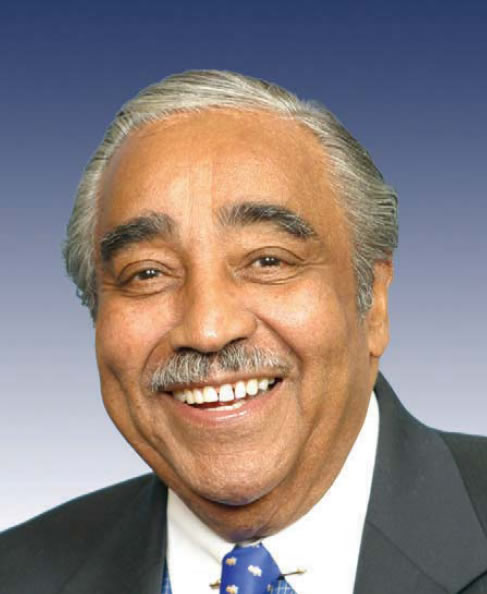 Charles Rangel is chair of the Ways and Means Committee. A founding member of the CBC, Rangel has represented Harlem and New York's West Side for 36 years, has chaired the Select Narcotic Abuse and Control Committee, and has served on other committees. This year, he published a memoir entitled, And I Haven't Had a Bad Day Since: From the Streets of Harlem to the Halls of Congress.' Charles Rangel is chair of the Ways and Means Committee. A founding member of the CBC, Rangel has represented Harlem and New York's West Side for 36 years, has chaired the Select Narcotic Abuse and Control Committee, and has served on other committees. This year, he published a memoir entitled, And I Haven't Had a Bad Day Since: From the Streets of Harlem to the Halls of Congress.'
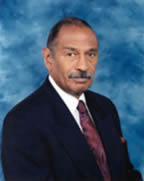 John Conyers Jr. chairs the Judiciary Committee. He has represented Michigan in the U.S. House since 1965, and is one of the founding members of the Caucus. He was on the Judiciary Committee when it voted for the Articles of Impeachment against Nixon. Conyers also introduced the first legislation in Congress to make Martin Luther King Jr.'s birthday a holiday. He has often been called “the most liberal legislator” in Congress. John Conyers Jr. chairs the Judiciary Committee. He has represented Michigan in the U.S. House since 1965, and is one of the founding members of the Caucus. He was on the Judiciary Committee when it voted for the Articles of Impeachment against Nixon. Conyers also introduced the first legislation in Congress to make Martin Luther King Jr.'s birthday a holiday. He has often been called “the most liberal legislator” in Congress.
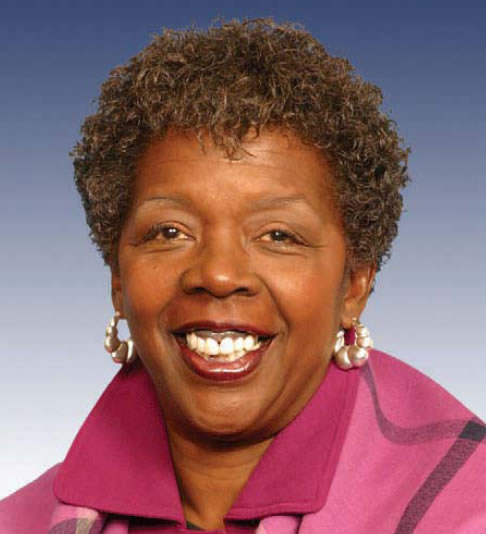 Stephanie Tubbs Jones chairs the House Committee on Standards and Official Conduct. She represents Cleveland, Ohio where she served as a municipal judge and prosecutor. Stephanie Tubbs Jones chairs the House Committee on Standards and Official Conduct. She represents Cleveland, Ohio where she served as a municipal judge and prosecutor.
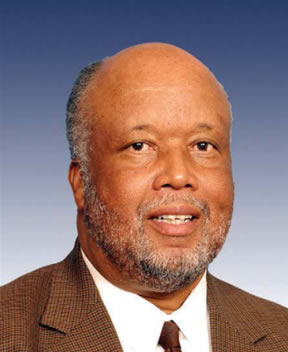 Bennie G. Thompson chairs the House Committee on Homeland Security, a key position in the post 9-11 period. He represents Mississippi, and once was mayor of the town of Bolton. Bennie G. Thompson chairs the House Committee on Homeland Security, a key position in the post 9-11 period. He represents Mississippi, and once was mayor of the town of Bolton.
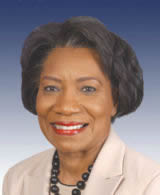 Another African American chairing a House committee earlier this year was Juanita Millender-McDonald, who represented California. She chaired the Committee on House Administration, but she passed away in April. A replacement has not yet been appointed. Another African American chairing a House committee earlier this year was Juanita Millender-McDonald, who represented California. She chaired the Committee on House Administration, but she passed away in April. A replacement has not yet been appointed.
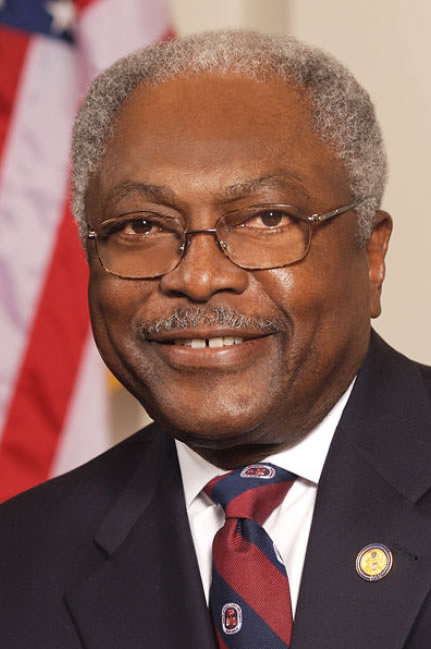 James Clyburn of South Carolina serves as House Majority Whip, the second time for an African American. William Gray of Pennsylvania served as Whip from 1989 to 1991. Clyburn served in the South Carolina legislature and held high-ranking administrative positions for many years. He is third in line to be Speaker of the House. James Clyburn of South Carolina serves as House Majority Whip, the second time for an African American. William Gray of Pennsylvania served as Whip from 1989 to 1991. Clyburn served in the South Carolina legislature and held high-ranking administrative positions for many years. He is third in line to be Speaker of the House.
 The most recent appointment is Lorraine Miller as first African-American clerk of the U.S. House of Representatives. Miller was appointed in January by House Speaker Nancy Pelosi, and has more than 20 years of experience on Capitol Hill, working for Pelosi, former Speakers Jim Wright and Tom Foley, and veteran civil rights activist John Lewis of Georgia. The most recent appointment is Lorraine Miller as first African-American clerk of the U.S. House of Representatives. Miller was appointed in January by House Speaker Nancy Pelosi, and has more than 20 years of experience on Capitol Hill, working for Pelosi, former Speakers Jim Wright and Tom Foley, and veteran civil rights activist John Lewis of Georgia.
Return To Top |
